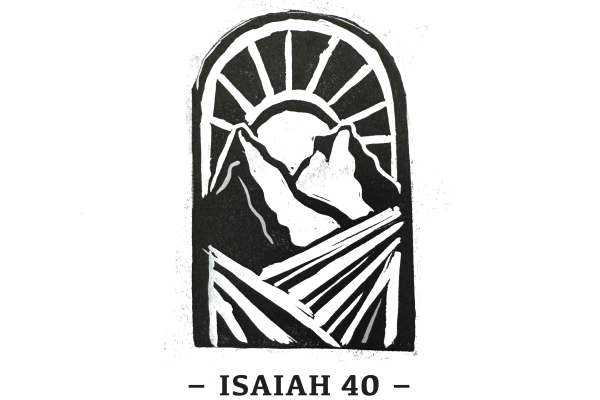
Second Wednesday of Advent: Prepare the Way
“In the wilderness prepare the way for the LORD…
Every valley shall be raised up,
every mountain and hill made low;
the rough ground shall become level,
the rugged places a plain.
And the glory of the LORD will be revealed,
and all people will see it together.”
—Isaiah 40:3-5
In the seventh grade, I took a class on shorthand. I didn’t know who might be using this cryptic messaging system in the world—if anyone—nor why. But it was fun to imagine I had a secret way of communicating.
I forgot about the class almost as quickly as it would take to write these words in shorthand—until a few years ago when I read an article about Irmgard Furchner and the stenography work she did in Germany as a college-aged woman.
I’m a firm believer that any work—minus a short list of exceptions—can be done for the glory of God. In Isaiah 40, God’s glory is revealed through everyday jobs by everyday people.
The passage begins with a command: “Prepare the way,” as though we are meant to play a real role in clearing the path. It does not say what jobs are required, but I assume it involves all of us doing all types of work. Including stenography.
However, Irmgard didn’t use her shorthand skills for the glory of God. From 1943 through 1945, Irmgard was the stenographer for the commandant's office at Stutthof concentration camp.
Perhaps she didn’t know any better. Perhaps she didn’t care. She certainly didn’t make way for the LORD.
Maybe she thought, as I might have thought, I just want a job with a decent paycheck and steady hours. I don’t want to ask why we have so many meetings, or where those trains full of people come from. I’m 18, for goodness’ sake, and a woman in the 1940s. Even if I did care, what difference could I make?
Shorthand isn’t a secret code to hide atrocious crimes; it’s simply an efficient method for taking notes. It is as neutral a skill as hanging gutters or teaching physical education. But as with all work in this now-but-not-yet time of Advent, how I employ my skills impacts the landscape and therefore how the LORD will (or will not) be revealed.
Preparing the way involves removing obstacles so that all people will see God’s glory. I either prepare the way or I don’t. I either make the path clearer or I don’t. Irmgard did not.
I’ve been told for years, “You can do whatever you put your mind to.”
I wish Paul’s words followed that license more often: “‘I have the right to do anything,’ you say—but not everything is beneficial…. No one should seek their own good, but the good of others” (1 Corinthians 10:23-24).
No work in this Advent era is holy through and through. Even while doing everything possible to prepare the way for the LORD, at least part of my efforts will get in the way. I may not have done what Irmgard did, but I am complicit. Could any of my jobs contribute to such unthinkable devastation as the holocaust? Not likely. But nor can I claim innocence.
Christ, have mercy. Lord, have mercy.
And he does have mercy.
The promise comes in future tense: The glory will be revealed; the people will see it. In case I forget this, the Messiah proclaims, “I am the way.” Like John the Baptist, I help prepare the way—but I am not the way.
Two years ago, on December 20, 2022, eight decades after her seemingly minor role at Stutthof, the 97-year-old Irmgard was tried in juvenile court and found guilty as an accomplice to more than 10,500 murders.
Christ, have mercy.
Honestly, I don’t know what I would have done in Irmgard’s shoes. So as I work and face formidable obstacles, I must plead for discernment about what brings wholeness to God’s world, for courage to act on what I discover, and for stamina to keep at it with relentless hope.
May all people, including Irmgard—and me, too—see the glory of God together.
—Sam Van Eman is an XD Resource Specialist with the Department of Transformative Opportunities.
Every valley shall be raised up,
every mountain and hill made low;
the rough ground shall become level,
the rugged places a plain.
And the glory of the LORD will be revealed,
and all people will see it together.”
—Isaiah 40:3-5
In the seventh grade, I took a class on shorthand. I didn’t know who might be using this cryptic messaging system in the world—if anyone—nor why. But it was fun to imagine I had a secret way of communicating.
I forgot about the class almost as quickly as it would take to write these words in shorthand—until a few years ago when I read an article about Irmgard Furchner and the stenography work she did in Germany as a college-aged woman.
I’m a firm believer that any work—minus a short list of exceptions—can be done for the glory of God. In Isaiah 40, God’s glory is revealed through everyday jobs by everyday people.
The passage begins with a command: “Prepare the way,” as though we are meant to play a real role in clearing the path. It does not say what jobs are required, but I assume it involves all of us doing all types of work. Including stenography.
However, Irmgard didn’t use her shorthand skills for the glory of God. From 1943 through 1945, Irmgard was the stenographer for the commandant's office at Stutthof concentration camp.
Perhaps she didn’t know any better. Perhaps she didn’t care. She certainly didn’t make way for the LORD.
Maybe she thought, as I might have thought, I just want a job with a decent paycheck and steady hours. I don’t want to ask why we have so many meetings, or where those trains full of people come from. I’m 18, for goodness’ sake, and a woman in the 1940s. Even if I did care, what difference could I make?
Shorthand isn’t a secret code to hide atrocious crimes; it’s simply an efficient method for taking notes. It is as neutral a skill as hanging gutters or teaching physical education. But as with all work in this now-but-not-yet time of Advent, how I employ my skills impacts the landscape and therefore how the LORD will (or will not) be revealed.
Preparing the way involves removing obstacles so that all people will see God’s glory. I either prepare the way or I don’t. I either make the path clearer or I don’t. Irmgard did not.
I’ve been told for years, “You can do whatever you put your mind to.”
I wish Paul’s words followed that license more often: “‘I have the right to do anything,’ you say—but not everything is beneficial…. No one should seek their own good, but the good of others” (1 Corinthians 10:23-24).
No work in this Advent era is holy through and through. Even while doing everything possible to prepare the way for the LORD, at least part of my efforts will get in the way. I may not have done what Irmgard did, but I am complicit. Could any of my jobs contribute to such unthinkable devastation as the holocaust? Not likely. But nor can I claim innocence.
Christ, have mercy. Lord, have mercy.
And he does have mercy.
The promise comes in future tense: The glory will be revealed; the people will see it. In case I forget this, the Messiah proclaims, “I am the way.” Like John the Baptist, I help prepare the way—but I am not the way.
Two years ago, on December 20, 2022, eight decades after her seemingly minor role at Stutthof, the 97-year-old Irmgard was tried in juvenile court and found guilty as an accomplice to more than 10,500 murders.
Christ, have mercy.
Honestly, I don’t know what I would have done in Irmgard’s shoes. So as I work and face formidable obstacles, I must plead for discernment about what brings wholeness to God’s world, for courage to act on what I discover, and for stamina to keep at it with relentless hope.
May all people, including Irmgard—and me, too—see the glory of God together.
—Sam Van Eman is an XD Resource Specialist with the Department of Transformative Opportunities.
